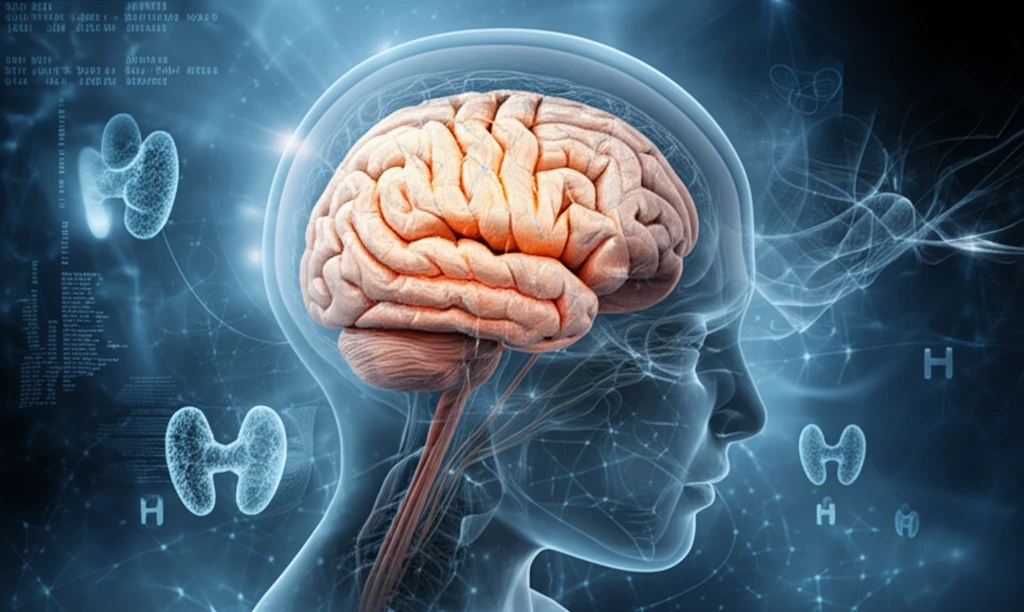
Thyroid Health and Development: How Hypothyroidism Impacts Your Baby's Future
"Uncover the critical link between thyroid function during pregnancy and your child's neurological development, and what you can do to ensure a healthy start."
During pregnancy, thyroid hormones (THs) play a vital role in fetal development, particularly in the construction of the cytoskeleton – the structural framework within cells. This system, composed of microtubules (Tubulin), microfilaments (Actin), and intermediate filaments, is essential for neural cell shape, neuronal migration, and overall brain development. When thyroid hormone levels are insufficient, especially due to maternal hypothyroidism, the consequences can be far-reaching.
Research indicates that THs regulate and reorganize the cytoskeleton through non-genomic actions. These hormones also control the expression of the extracellular matrix (ECM) and adhesion molecules, crucial for neuronal migration and development. These include vital substances like tenascin-C, neural cell adhesion molecule (N-CAM), reelin and dab1, laminin, and fibronectin. These ECM and adhesion molecules are building blocks and must be available.
A mother's thyroid hormones directly influence the expression of genes related to neuronal migration, neurite branching, astrocytic cytoskeletal proteins, cell cycle regulators, neurotrophins and their receptors, and extracellular matrix proteins within the fetal brain. Ensuring adequate thyroid hormone levels is thus paramount for healthy neurological development.
The Chilling Effects of Hypothyroidism on Brain Development

Maternal hypothyroidism can significantly reduce the expression of Glial Fibrillary Acidic Protein (GFAP) in the fetal brain during late gestation. Studies on neonatal hypothyroid rats reveal disorganized actin fibers in the cerebellum, alongside disruptions in laminin. These abnormalities can alter cellular cytoskeleton development, impacting microtubule protein synthesis, axonal transport, neuronal outgrowth, and behavior. This disruption of axonal transport has downstream impacts.
- Disrupted Cellular Structure: Hypothyroidism leads to disorganized actin fibers and disruptions in laminin, critical components of the brain's cellular structure.
- Impaired Protein Synthesis: The condition affects the synthesis of microtubule proteins, vital for axonal transport and neuronal development.
- Behavioral Changes: Resulting abnormalities impact neuronal outgrowth and behavior, leading to potential developmental delays.
Future Directions: Can We Reverse the Damage?
The window for thyroid hormone-dependent regulation of these processes is primarily limited to pre- and perinatal life. Thyroid disorders during development can disrupt the cytoskeleton system, mitochondrial functions, and gene expression. Further research is needed to determine if normalizing circulating TH levels can prevent disturbances in fetal brain cytoskeletal protein expression. This could pave the way for interventions that mitigate the neurological impacts of thyroid imbalances during pregnancy, ensuring healthier outcomes for future generations.
